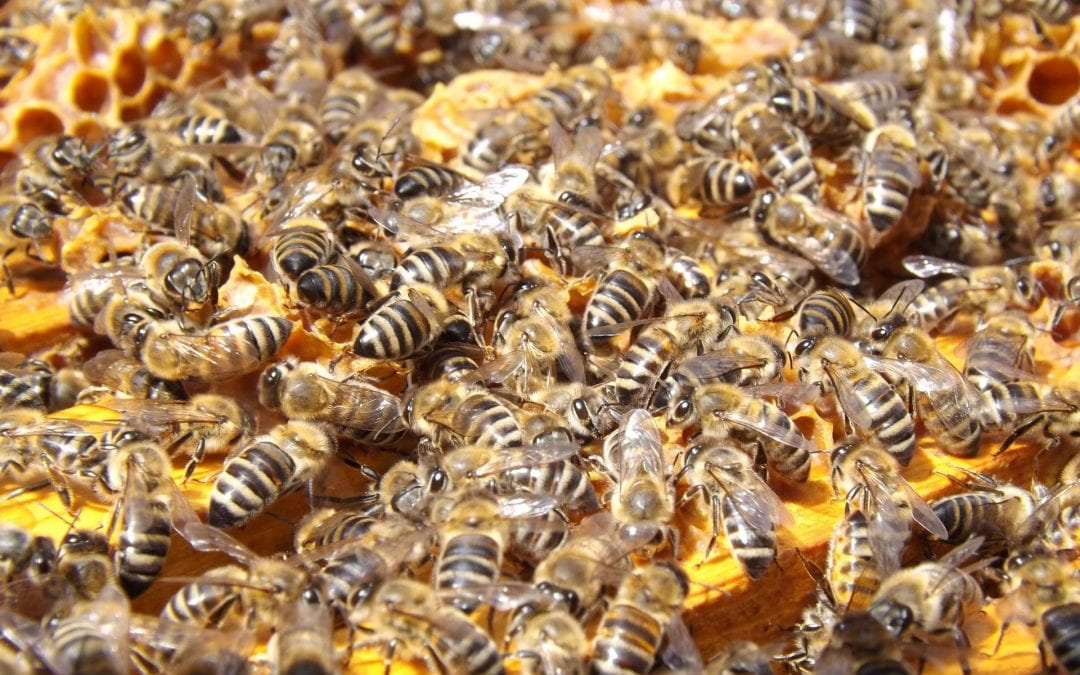Every once in a while, stories pop up in the news cycle about honey bees dying or disappearing mysteriously. Often, this is attributed to something called Colony Collapse Disorder. We have no idea what causes it yet, or how to prevent it, but here’s what we do know.
In a colony experiencing Colony Collapse Disorder, all or most of the worker bees disappear. However, the queen remains behind, and so does the brood and larva. The hives still have honey in them, and there are some nursery bees left behind to care for the brood. Colony Collapse Disorder has been observed in the US, Belgium, France, the Netherlands, Greece, Italy, Portugal, Spain, Germany, and Switzerland. David Hackenberg, a beekeeper from Florida, raised the first alarm of Colony Collapse Disorder in 2006. After Hackenberg’s initial warning hundreds of other beekeepers have reported completely empty hive. As of 2010, researchers have announced that colonies that experienced Colony Collapse Disorder had also been infected with a virus, IIV-6. Other than that, very little information has been uncovered.
On the bright side, this statement from the EPA reports that Colony Collapse Disorder reports have been falling since 2015:
“The number of hives that do not survive over the winter months – the overall indicator for bee health – has maintained an average of about 28.7 percent since 2006-2007 but dropped to 23.1 percent for the 2014-2015 winter. While winter losses remain somewhat high, the number of those losses attributed to CCD has dropped from roughly 60 percent of total hives lost in 2008 to 31.1 percent in 2013; in initial reports for 2014-2015 losses, CCD is not mentioned.”
Do you or someone you know keep bees? We want to hear your story! Pace University’s Pace Docs crew is in the process of producing a documentary about Urban Beekeeping, the latest in a series of award-winning environmentally and culturally relevant documentaries from our department. Contact us at paceudocs@gmail.com. And follow us on Instagram, Facebook, Twitter, and Tik Tok for more content!

